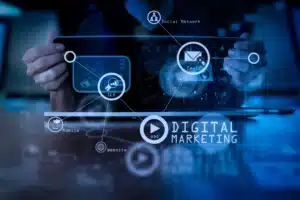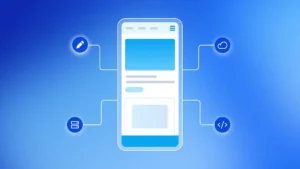The rapid rise of Agentic AI and Generative AI is reshaping software engineering, unlocking innovation at an unprecedented pace. Yet, with this power comes profound ethical responsibility. Ethics in software engineering is no longer a peripheral concern—it is the foundation for building trustworthy, safe, and inclusive technology that serves society fairly and transparently.
At Amquest Mumbai, we understand that tomorrow’s software engineers must master both cutting-edge technical skills and rigorous ethical reasoning. Our Software Engineering, Agentic AI and Generative AI Course equips learners with this dual expertise, preparing them to innovate responsibly in a complex digital landscape.
This article explores the evolution of ethics in software engineering, highlights emerging trends and tools, and offers advanced tactics to embed ethics deeply into development processes. Along the way, we share real-world insights and demonstrate how ethical rigor drives business success and user trust.
The Evolution of Ethics in Software Engineering
Software engineering has always been more than just coding; it is a social discipline grounded in moral responsibility. From the early ACM and IEEE codes of ethics to today’s complex challenges, the profession’s ethical framework has continually evolved to meet new realities.
Key milestones:
- 1970s to 1990s: Emphasis on reliability, safety, honesty, and professional integrity.
- 2000s to 2010s: Focus shifted towards data privacy, security, and fairness, giving rise to “digital ethics.”
- 2020s onward: The AI revolution, including Agentic and Generative AI, has intensified debates around accountability, transparency, bias, and societal impact.
Today’s ethical coding principles are integral throughout the software development lifecycle. Frameworks like the ACM/IEEE Code of Ethics guide engineers to prioritize public interest, client confidentiality, and professional accountability, reflecting a commitment to societal well-being beyond technical excellence.
Latest Trends and Tools in Ethical Software Development
Ethical software development is a dynamic field, evolving alongside technology itself. Several trends and tools now shape how organizations approach responsible innovation.
Emerging Trends
- Responsible AI: Companies establish AI ethics boards and deploy bias detection tools to ensure fairness and equity.
- Privacy by Design: Regulatory frameworks like GDPR have embedded privacy as a core design principle rather than an afterthought.
- Sustainable Computing: Awareness of AI’s environmental impact drives innovation in energy-efficient algorithms and green software practices.
- Open Source and Transparency: Open communities enable peer review, democratize access to ethical tools, and reduce vendor lock-in.
Essential Tools
| Tool/Practice | Purpose | Example Use Case |
|---|---|---|
| IBM’s AI Fairness 360 | Bias detection and mitigation in ML | Auditing recruitment algorithms |
| TensorFlow Privacy | Differential privacy in machine learning | Safeguarding user data in health apps |
| Linters for Ethical Code | Flagging harmful or insecure code patterns | Preventing API security vulnerabilities |
These tools are increasingly vital for developers committed to responsible coding and ethical software development.
Advanced Tactics for Embedding Ethics
Leading organizations move beyond compliance, embedding ethics into their culture and processes.
Practical Steps for Engineering Teams
- Ethics Training: Regular workshops on digital ethics, bias mitigation, and compliance.
- Ethics Review Boards: Cross-functional teams assess societal impact before product launches.
- Transparent Documentation: Clear explanations of AI decision-making processes.
- User-Centric Design: Diverse user testing to uncover biases and accessibility issues.
Ethical Development Checklist
- Conduct privacy impact assessments for new features.
- Test algorithms for bias across demographics.
- Document ethical considerations and design trade-offs.
- Provide user channels for reporting concerns and requesting explanations.
Such tactics foster trust and reduce risk, delivering a competitive edge in an increasingly ethics-conscious market.
The Power of Storytelling and Community
Ethical principles gain meaning through real-world stories. The Boeing 737 MAX tragedy, linked to software safety lapses, highlights the grave consequences of neglecting ethics. At Amquest, we integrate student stories and faculty bios into learning, illustrating how ethical dilemmas arise and are resolved in practice.
Our learners engage with industry partners through internships, gaining firsthand experience navigating complex tech accountability. Building a community around ethical coding principles cultivates a culture of continuous learning and open dialogue—core to responsible innovation.
Measuring Success: Analytics and Ethical Impact
How do organizations know their ethical efforts are effective? By tracking both technical and human-centered metrics:
- Compliance Rates: Percentage of projects undergoing ethics reviews.
- User Trust Scores: Surveys measuring perceived fairness and transparency.
- Diversity Metrics: Representation within development teams and user testing groups.
- Incident Response Times: Speed and effectiveness in addressing ethical issues.
These KPIs demonstrate commitment to developer responsibility and promote ongoing improvement.
Business Case Study: Ethical AI in Healthcare
Brand: Leading telehealth platform
Challenge: Ensuring AI diagnostics are fair, accurate, and explainable across diverse populations.
Tactics:
- Formed an ethics review board including clinicians and patient advocates.
- Used bias detection tools during model training.
- Delivered clear, multilingual AI recommendation explanations.
Results:
- Reduced diagnostic disparities by 30%.
- Increased patient trust scores by 25%.
- Secured regulatory approval in multiple markets.
This case shows that ethics in software engineering is not only a moral imperative but also a business differentiator.
Actionable Tips for Technology Leaders
CTOs, architects, and engineering managers can champion ethics by:
- Leading by Example: Model ethical decision-making at all levels.
- Investing in Education: Support ongoing training in digital ethics and responsible AI.
- Fostering Open Dialogue: Create safe spaces for ethical discussions.
- Leveraging Technology: Adopt tools for automated ethics checks and bias detection.
- Partnering with Academia: Collaborate with institutions like Amquest Mumbai to stay ahead of emerging challenges.
Why This Course Stands Out
Many programs teach coding and AI, but few embed ethics in software engineering as deeply. The Software Engineering, Agentic AI and Generative AI Course offers:
- AI-Powered, Hands-On Learning: Industry-designed modules with real-world projects and AI-driven feedback.
- Ethics at the Core: Digital ethics, bias mitigation, and responsible innovation integrated throughout the curriculum.
- Industry Partnerships: Strong ties with tech leaders ensure meaningful internships and placements.
- Experienced Faculty: Practitioners who have navigated ethical dilemmas in large-scale deployments.
- National Reach, Local Impact: Online availability across India makes top-tier education accessible.
This holistic approach prepares graduates to be ethical leaders and innovators.
Conclusion
Ethics in software engineering is essential for sustainable innovation. As Agentic and Generative AI redefine technology’s possibilities, engineers and leaders must ensure these tools serve humanity safely, fairly, and transparently. Education is the starting point.
The Software Engineering, Agentic AI and Generative AI Course uniquely blends advanced technical training with deep ethical grounding, preparing the next generation to balance innovation with accountability.
Ready to lead with integrity in the age of AI? Explore the course today and join a community committed to responsible coding and ethical software development.
FAQs
What is ethics in software engineering?
Ethics in software engineering refers to the moral principles guiding the creation of technology that is safe, fair, and beneficial to society. It includes responsible coding, privacy protection, bias mitigation, and accountability.
Why is responsible coding important?
Responsible coding ensures software is reliable, secure, and free from harmful biases, building trust and preventing negative societal impacts.
How does ethical software development differ from traditional development?
Ethical software development integrates fairness, privacy, and transparency into every stage of the lifecycle rather than treating them as mere compliance checkboxes.
What are common ethical challenges in AI?
Challenges include algorithmic bias, lack of transparency, privacy violations, and unintended consequences of autonomous systems.
How can organizations promote ethical behavior in tech teams?
By fostering ethics training, transparent processes, ethics review boards, and rewarding responsible innovation.
What makes this course unique in teaching ethics in software engineering?
It combines hands-on AI and software training with strong ethical principles, industry internships, and experienced faculty, preparing graduates to navigate real-world ethical challenges confidently.







